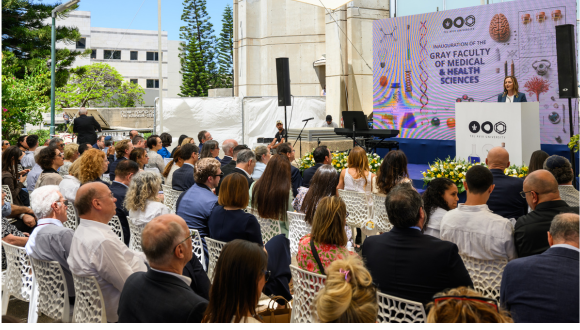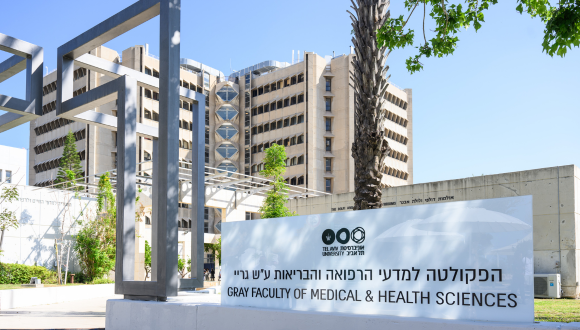$125 million donation will help advance research possibilities, collaboration, international studies and more
When Mindy and Jon Gray donated $125 million to Tel Aviv University (TAU) in May 2025, it was a defining moment—not only for the institution but for Israel’s place in global biomedical science. Now renamed TAU’s Gray Faculty of Medical & Health Sciences, Israel’s largest medical faculty is poised for transformation, fueled by what Vice Dean Prof. Rina Arbesfeld calls a huge step forward in talent recruitment, infrastructure and international reach.
“We want the best scientists to come to Tel Aviv,” said Arbesfeld, who oversees non-clinical research programs across the faculty’s multiple schools, such as in public health, dentistry and medicine.
“What makes the difference is where they can do the best science—where they’ll have the infrastructure, the collaborators, the support. This gift helps us offer all of that.”—Prof. Rina Arbesfeld
A Leader in Translational Medicine
What sets TAU’s medical and health sciences faculty apart, she noted, is its extraordinary integration with Israel’s healthcare system. “We’re affiliated with 18 hospitals, many of them the most advanced in the country,” she said. This model—anchored in translational medicine—has already yielded collaborations in many areas, for instance like in gastroenterology and genetics.

Medical Dean Prof. Karen Avraham speaking at the inauguration ceremony (Photo credit: Yuval Yosef)
A recent example from Arbesfeld’s own lab moved from experimental design to clinical application and back again for joint analysis.
“We do our best to know what is missing and what a patient needs and to find solutions.”
“That’s what makes our faculty unique … working directly with the hospitals … and it’s what the Gray Foundation is helping to amplify,” said Prof Arbesfeld.
With the creation of a new interdisciplinary Biomed Building, researchers from TAU, its affiliated hospitals and beyond will share advanced equipment and lab space designed to encourage precisely the kind of interdisciplinary, translational work that can set international standards. “We want the building to serve the entire biomed community,” said Arbesfeld.
Additionally, funding will be earmarked to support other key strengths of the faculty, for instance as related to cancer research, BRCA-related genetic mutations, neuroscience and ancient DNA.
Building the Infrastructure to Attract Global Talent
The Gray Foundation’s support will also boost recruitment of top biomedical researchers from around the world. “We want to create the conditions that bring the best people here,” Arbesfeld said. “That means not just funding, but facilities, housing and strong scientific communities.”

(Photo credit: Yuval Yosef)
A new 600-bed dormitory—another component of the gift—will make it easier for graduate students, especially international and underrepresented students, to live and study in Tel Aviv. That accessibility is also being reinforced in other ways.
The faculty is expanding its English-language graduate courses, strengthening administrative support for international students and aiming to develop a dedicated summer research program to attract young talent from abroad.
Scholarships for international students are also in the pipeline—part of a broader vision to grow a globally connected academic community while deepening inclusion at home.
“We want a faculty that reflects the diversity of Israeli society,” said Arbesfeld. “Jewish, Arab, Christian, Muslim, Israeli and international—working together. This is who we are.”
Want to learn more about the Gray Faculty of Medical and Health Sciences? Join us at the faculty’s Prospective PhD and Postdoc week, happening August 31– September 1, 2025.
Admissions for the Biomedical PhD program at the Gray Faculty of Medical and Health Sciences are now open.
